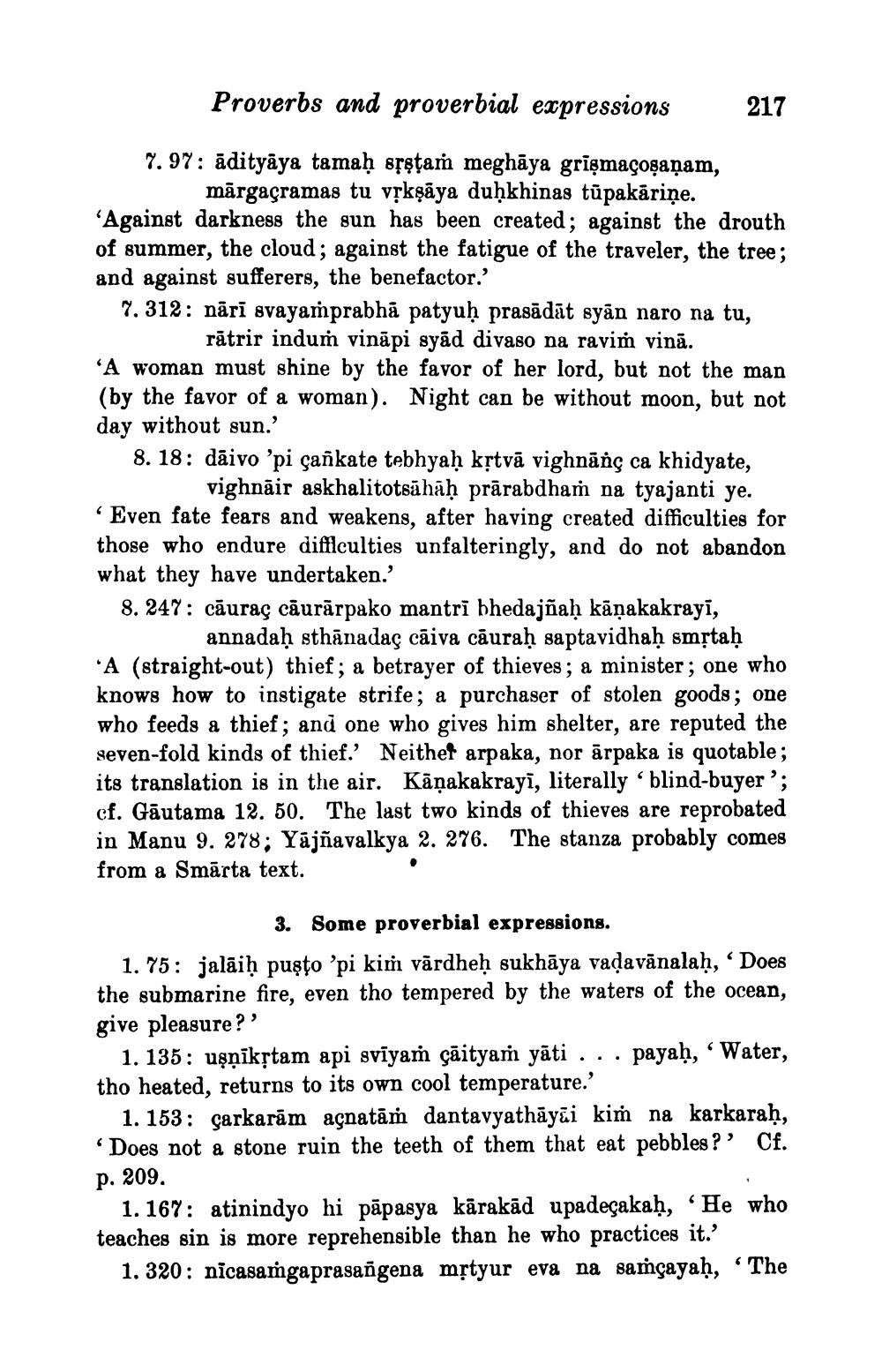________________
Proverbs and proverbial expressions
217
7.97: adityāya tamaḥ sýstam meghāya grīşmaçosaņam,
mārgaçramas tu vškşāya duḥkhinas tūpakāriņe. 'Against darkness the sun has been created; against the drouth of summer, the cloud; against the fatigue of the traveler, the tree; and against sufferers, the benefactor.' 7. 312: nārī svayamprabhā patyuḥ prasādāt syān naro na tu,
rātrir indum vinäpi syād divaso na ravim vinā. A woman must shine by the favor of her lord, but not the man (by the favor of a woman). Night can be without moon, but not day without sun.' 8. 18: dāivo 'pi çañkate tebhyaḥ kṛtvā vighnānç ca khidyate,
vighnāir askhalitotsāhāḥ prārabdham na tyajanti ye. Even fate fears and weakens, after having created difficulties for those who endure difficulties unfalteringly, and do not abandon what they have undertaken.' 8. 247: cāuraç cāurārpako mantrī bhedajñaḥ kāņakakrayi,
annadaḥ sthānadaç cāiva căuraḥ saptavidhaḥ smộtaḥ *A (straight-out) thief; a betrayer of thieves; a minister; one who knows how to instigate strife; a purchaser of stolen goods; one who feeds a thief; and one who gives him shelter, are reputed the seven-fold kinds of thief.' Neithet arpaka, nor ārpaka is quotable; its translation is in the air. Kāņakakrayī, literally 'blind-buyer'; cf. Gāutama 12. 50. The last two kinds of thieves are reprobated in Manu 9. 278; Yājñavalkya 2. 276. The stanza probably comes from a Smārta text.
3. Some proverbial expressions. 1.75: jalāiḥ puşto 'pi kim vārdheḥ sukhāya vadavānalaḥ, ‘Does the submarine fire, even tho tempered by the waters of the ocean, give pleasure?'
1. 135: uşņīkstam api svīyam çāityam yāti ... payaḥ, 'Water, tho heated, returns to its own cool temperature.'
1. 153: çarkarām açnatāṁ dantavyathāyāi kií na karkaraḥ, 'Does not a stone ruin the teeth of them that eat pebbles ?' Cf. p. 209.
1. 167: atinindyo hi pāpasya kārakād upadeçakaḥ, 'He who teaches sin is more reprehensible than he who practices it.'
1. 320: nīcasamgaprasañgena mộtyur eva na sasçayaḥ, “The




